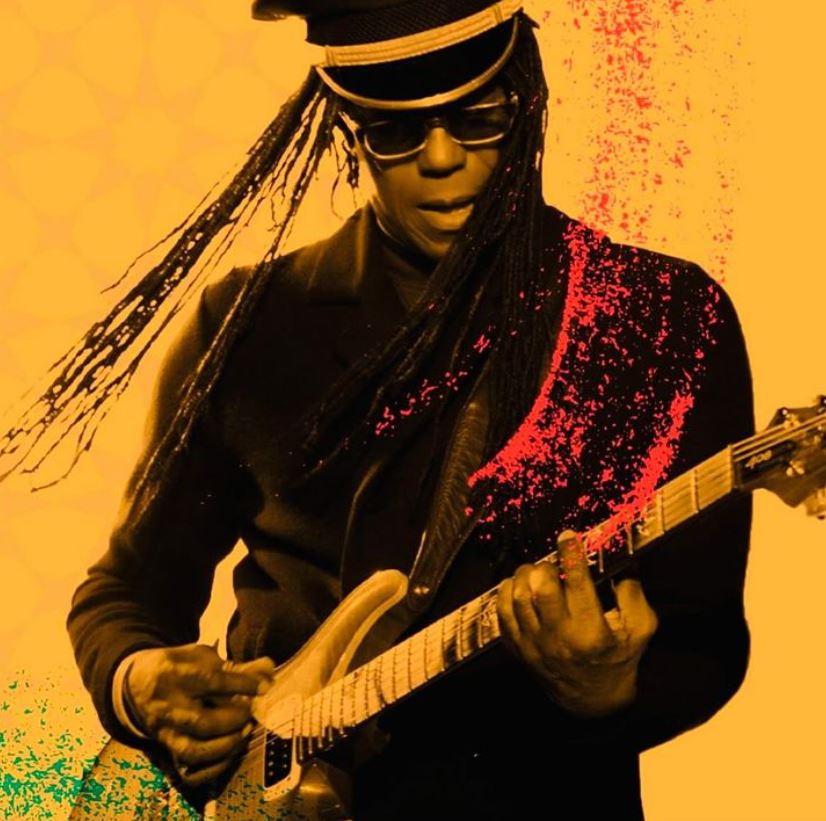
One of the eternal foundations of timeless music is its ability to send your mind to a different place in space. And, that’s what exactly happened one recent night at the fabled Odeum in East Greenwich.
Gazing out at a packed house, this reporter was transported by a mystical time machine to a throbbing, heavenly planet called reggae world. Or, should I say Junior Marvin & the Legendary Wailers sent me hurtling back in time some 45 years ago when the pulsating sounds of reggae were commonplace on the FM radio dial.
Marvin, who originally became Marley’s guitar player in 1977 and recorded the masterpiece Exodus, in England, still knows how to work a concert hall crowd and share with them a ride into the land of Marley, Trenchtown, and the cosmos that surround this brilliant music called reggae.
Although it’s been nearly 40 years since Marley passed away, his music remains fresh, timely and danceable, as witnessed that night. It was as though Carlton Barrett, the original Wailers’ drummer was resurrected that night laying down an unmistakable backbeat that the audience craved through the nearly 90 minute set.
From the first down beat, the crowd roared approval as Marvin and company rode a wave of timeless Wailers blockbusters, including One Love, Get Up Stand Up, Exodus, No Woman No Cry and the instantly recognizable Buffalo Soldier.
Marvin, who gyrated across the stage all night said “I want to see you dancing,” before delving into the erotic “Stir It Up.” The classic, composed by Marley in 1967 and then covered by American R&B star Johnny Nash, in 1972, is an ode to his new wife, Rita Marley, who he had just married a year before the song’s release. In it, Marley sings about sexual intimacy long before Marvin Gay penned the classic “Sexual Healing,” a Motown classic.
While the band orchestrated a trance-like groove during the number, the crowd, who was made up of a diverse group of reggae lovers, danced the night away.
Just when it appeared as though the crowd’s euphoria was at a fever pitch, Junior Marvin & the Legendary Wailers launched into the timeless “I Shot the Sheriff.” The song, penned by Marley and first released on the 1973 album Burnin, is the prophetic and controversial story of self-defense, police, and human rights. Marley openly sings I shot the sheriff, but in self-defense. Now, fast forward to the 21st century and Black Lives Matter and George Floyd’s murder. A keen observer once said we are bound to repeat history, if we don’t learn from it.
Learning and love are the cornerstones of reggae then and today.
Marley, who heralded Rastafarianism, a Jamaican spiritual movement, back in the 1970s, drew attention to the need for equality, justice, and love in the world. But, Marley was a prophet for a way of life whose roots trace back to Haile Selassie, was named emperor in Ethiopia, in 1930. He was considered a living embodiment of God and was a Black man. Earlier, Jamaican born Marcus Garvey, heralded the coming of a Black messiah.
While Marley, who sang of equality, freedom and rebellion, part of that ethic is his call for legalizing marijuana, which eventually would be legalized in Jamaica in 2015, nearly 40 years after Marley died, due to cancer.
That night at the Odeum this reporter learned a lesson that’s been repeated through time, great music transcends generations. It was true when the Wailers formed back in the early ‘60s, headed up by Marley, Peter Tosh, guitarist, and Bunny Wailer, original lead singer. And, it may never fade away thanks to these legends and the fans that cherish this music for generations to follow.
The next generation of reggae musicians to open the show were Dude Man Bro, a perennial Motif reggae music award winner and South County staple. Their lively set, backed up by a talented horn section, set the stage for one cherished night.
For more information on the world of reggae go to Reggaeville.com for all the latest information about upcoming festivals and reggae acts worldwide.
Walter Slattery is a music writer, arts lover and ‘60s throwback. He can be reached at slatterywalter1@gmail.com